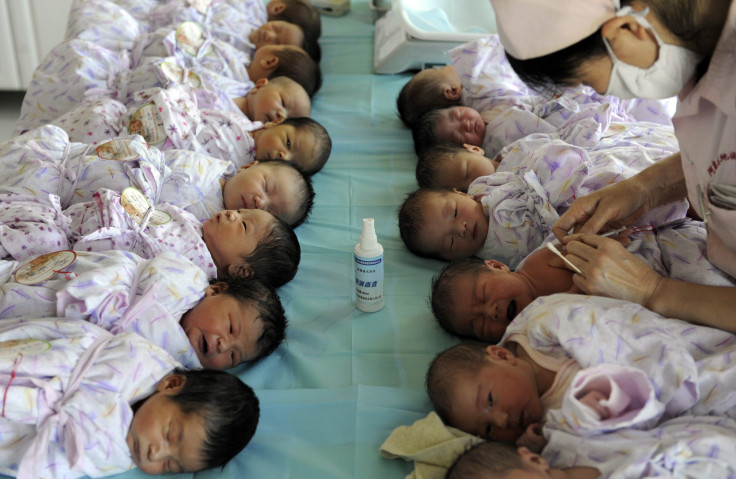Chinese City Of Wuhan Wants To Discourage Extramarital Affairs By Fining Unwed Mothers
The government of Wuhan, the capital of Hubei province with a population of more than 10 million, recently published a draft of its Population and Planned Birth Regulations, one of which specified that an unwed mother who cannot supply proof of the child’s father, or who had a child knowingly with a married man, will have to pay a “child-rearing fee.”
The regulations caused an uproar, according to Caixin, a leading Chinese financial newspaper. The government of Wuhan hastened to explain that these regulations are still in the draft stage, and welcomed public input and discussion. Media interpretation of the fee as a fine is erroneous, the government added.

The regulation is in large part an attempt to discourage extramarital affairs, and to combat the trend in recent years for wealthy and successful Chinese men to keep mistresses. "Ernai," which means second wife, and "xiaosan," which means a third person in a marriage, have both become ubiquitous terms in China for mistresses.
However, that shouldn't be relevant to the issue at hand, said Wang Feng, the director of the Brookings-Tsinghua Center for Public Policy, a partnership between the Brookings Institution in Washington, D.C., and China’s Tsinghua University, which produces high-quality policy research, The question is, according to Wang, does China need an “ethics police” to regulate the way its people live with fines and other forms of punishment?
Having children outside of marriage, whether ethical or good for the social integrity of China, should be an issue resolved between each man and woman involved, Wang added. “The Bureau of Planned Birth should not be put in charge as the upholder of social integrity,” Wang said.
In addition, "the main function of the Bureau of Planned Birth should be promoting healthy and hygienic living, not administering fines and other forms of punishment,” Wang said. “The move [by the Wuhan government’s Bureau of Planned Birth] oversteps its authority.”
1995 marked a shift in the function of the Bureau of Planned Birth to provide disease prevention and birth control services, instead of its previous function of meting out punishment for having more children than the state allowed, Wang added. In 2013, the Bureau of Planned Birth was merged into the Department of Health, a further contraction in its authority.
Wang believes this stipulation has no legal basis, Caixin reported.
Netizens have mostly sided with Wang, and believe if punishment were due, women cannot be the only ones punished. The men involved in such cases have just as much social responsibility. Wuhan’s fining of unwed mothers shows distinct gender discrimination.
“Unwed mothers are already facing economic and social pressures. They are already a vulnerable group,” Wang said, according to Caixin. “The Department of Health should be providing help to them instead of punishing them. Such discrimination and punishment will only exacerbate existing problems of abortion, child abandonment and child selling.”
The Chinese government has always been hands-on in regulating how its citizens conduct their private lives -- the most well-known example being the one-child policy. However, as that policy shows signs of relaxation and as the Chinese people become more informed on social issues, they are becoming increasingly uneasy with the government meddling in their private lives.
© Copyright IBTimes 2025. All rights reserved.




















